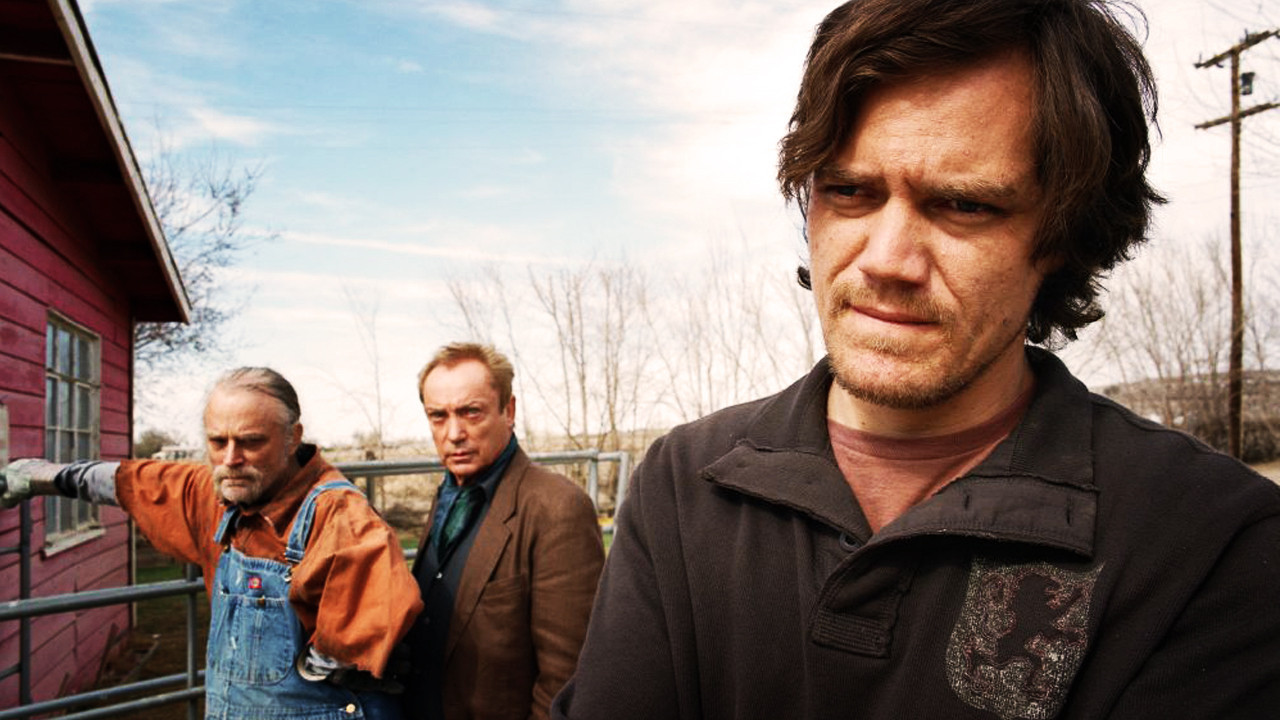
Throughout film history, geniuses made masterpieces that represent not only the issues of their own times but also reaching universal themes — these movies are relatable years after their initial release.
This list compiles such works from around the world: Italy, Spain, Austria, France and beyond, crossing over genres from horror to comedy.
10. Porcile (1969)
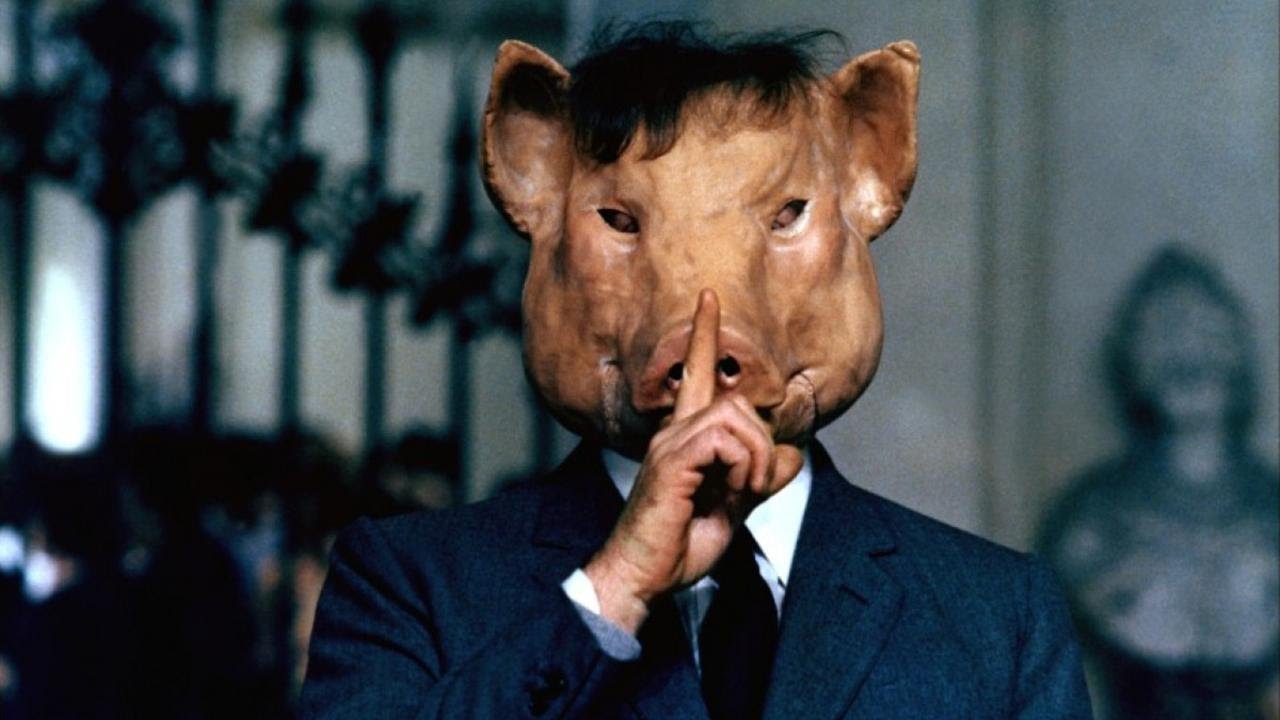
Pier Paolo Pasolini – the greatest Italian poet of the Italian poet of the twentieth century, according to Alberto Moravia – is also one of the most significant film directors in history. Whether it is the Catholic masterpiece, The Gospel According to St. Matthew (1964), or the extremely disturbing Salò, or the 120 Days of Sodom (1975), the Italian master never fails to display a greatness of poetic spirit and an understanding of the human condition.
Porcile is arguably his strangest film. It tells two parallel stories: one about prehistoric cannibals, another about a rich family’s pigsty. The movie is as much an intellectual exercise as a stylistic amusement. There is no plot to be spoken of – it is more like Modernist or Symbolist poetry than like a narrative feature.
The film’s infamous tagline, “I killed my father, I ate human flesh and I quiver with joy”, summarizes its psychoanalytic and amoral nature. It can be seen as both a critique of capitalist society and an allegory about human nature, exploring the crossroads between morality and desire, values and instincts.
Although undoubtedly a great film, Porcile is not the best introduction to Pasolini’s filmography. Viewer unaccustomed to the Italian auteur’s work should start with his more accessible neorealist works, such as Mama Roma (1962), or his more straightforward experimental works, like Teorema (1968). Only then the artistic intricacy of Porcile reveals itself.
9. Investigation of a Citizen Above Suspicion (1970)
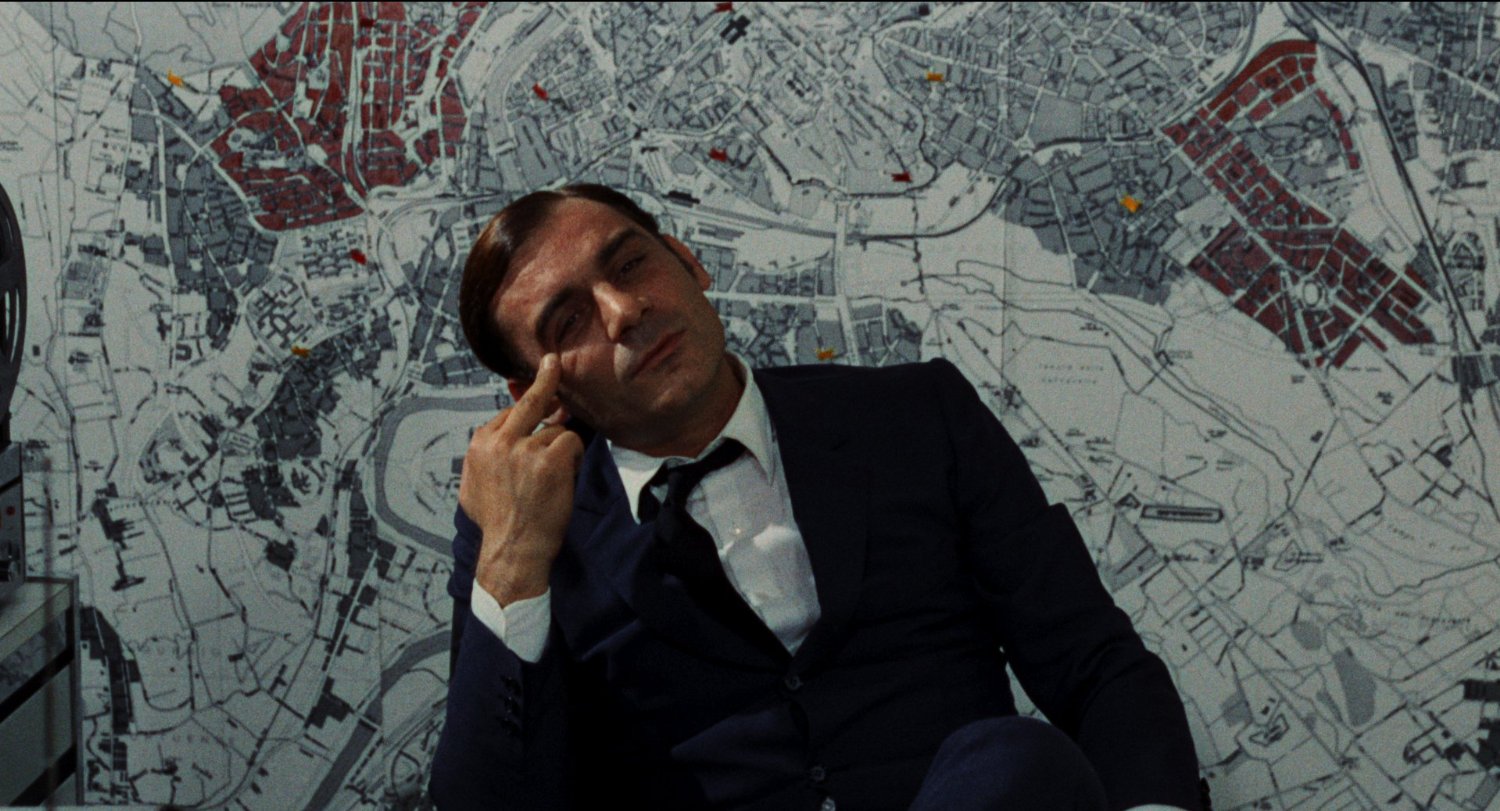
Winning the Academy Award for Best Foreign Language Film in 1970, Investigation of a Citizen Above Suspicion is gradually being forgotten. It deserves more contemporary critical attention because of its biting plot and technical mastery. Made within the tradition of great psychological novels, Elio Petri’s crime drama shines with Dostoevskian grandeur.
It follows a corrupt police officer (Gian Maria Volontè) testing the limit of bureaucracy. At the beginning of the film, he kills his mistress in order to challenge his status as “citizen above suspicion” — whether his police colleagues will convict him of murder or not?
Volontè’s (A Fistful of Dollars (1965), For a Few Dollars More (1965)) charismatic performance sends shivers down the audience’s spine. He communicates the character’s inhumanity in illuminating terror. The legendary film score composer, Ennio Morricone’s soundtrack highlights the gravity and absurdity of the subject matter.
This is, above all, a political film that allows multiple interpretations, mediated through a character study of a madman. On the pure plane of entertainment — this motion picture will not fail — it is a suspenseful thriller of the highest craftsmanship.
8. The Devils (1971)
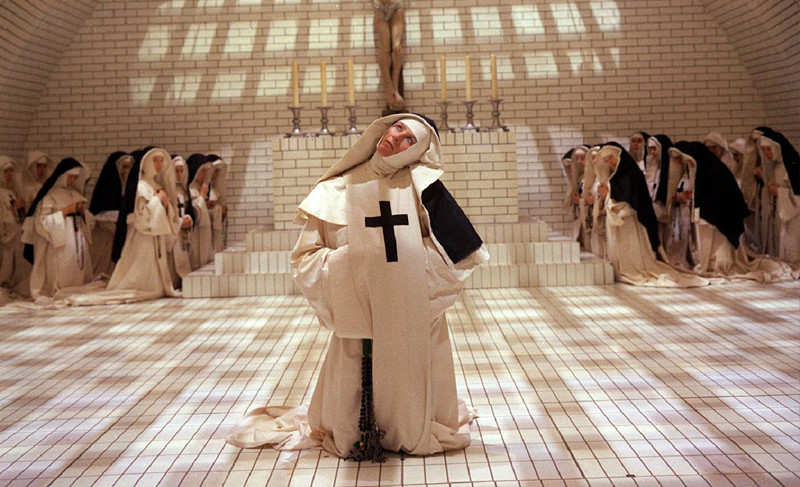
Ken Russell’s bizarre historical drama set in seventeenth century France is a cult film slowly regaining popularity. Famously given a zero out of four stars by Roger Ebert, this curiosity of a movie is surely divisive. Filled with excessive sexual imagery and (possibly very offensive) religious themes, viewing The Devils is a unique experience: it disgusts, shocks, and above all, provokes thoughts.
The story concerns a Roman Catholic priest, Urbain Grandier, persecuted by the Church for witchcraft practice, and his attempt to protect the city of Loudon. With the strangest possession scenes that can only arise from 1970s film culture, Russell’s film plays exchanges historical accuracy for a wild fantasy. Oliver Reed’s operatic performance is full of passion, almost over-the-top, but never fails to invoke emotions of sympathy and fear, without falling into the laughable.
This is a difficult film to talk about. Apart from its strangeness, the uncut version of the movie is also hard to find. Multiple available versions of The Devils are either incomplete or are in poor quality or are both. Nonetheless, it doesn’t make the feature any less worth watching.
The film’s utter uncanniness is the source of its greatness. It is one of those dark roller coaster journeys that keeps the audience engaged, although not always in an enjoyable way. Also, for Ken Russell’s unique directorial skills alone, The Devils is not only worth viewing: it should be studied.
7. Alice in the Cities (1974)
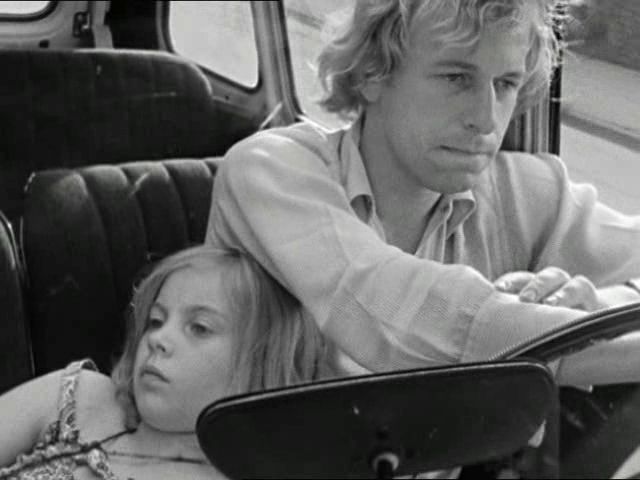
Wim Wenders is perhaps best-known for his poetic epic, Wings of Desire (1989), and deservedly so. Alongside filmmakers such as Werner Herzog, Rainer Werner Fassbinder, and Volker Schlöndorff, Wenders is one of the most significant directors of New German Cinema. Alice in the Cities is his early work.
In a sense, every Wenders film is a road movie. In road trips, characters lose and find themselves, they meet others and discover something deeper about the world: something unutterable in language, communicable only through experience, and may be glimpsed through the cinematic art. This film follows a German writer’s (Rüdiger Vogler) journey with a child (Yella Rottländer) to find the child’s place of belonging.
Wenders’ fourth feature is his breakthrough opus, and arguably, his first masterpiece. For the first time, he shakes off influences from other directors, such as John Cassavetes, and attempt something only he can achieve. As can be guessed from the realist black-and-white cinematography and the heartbreaking performances from the main actors: it is a truly personal film about an artist finding himself.
Alice in the Cities is one of those rare films in which characters are not plot devices, or even related to a traditional plot, but rather, they are humans made of flesh and blood. Moments of vulnerability speak true and soft into the audience. This film is a portal to experience the magic of cinema.
6. The Psychic (1977)
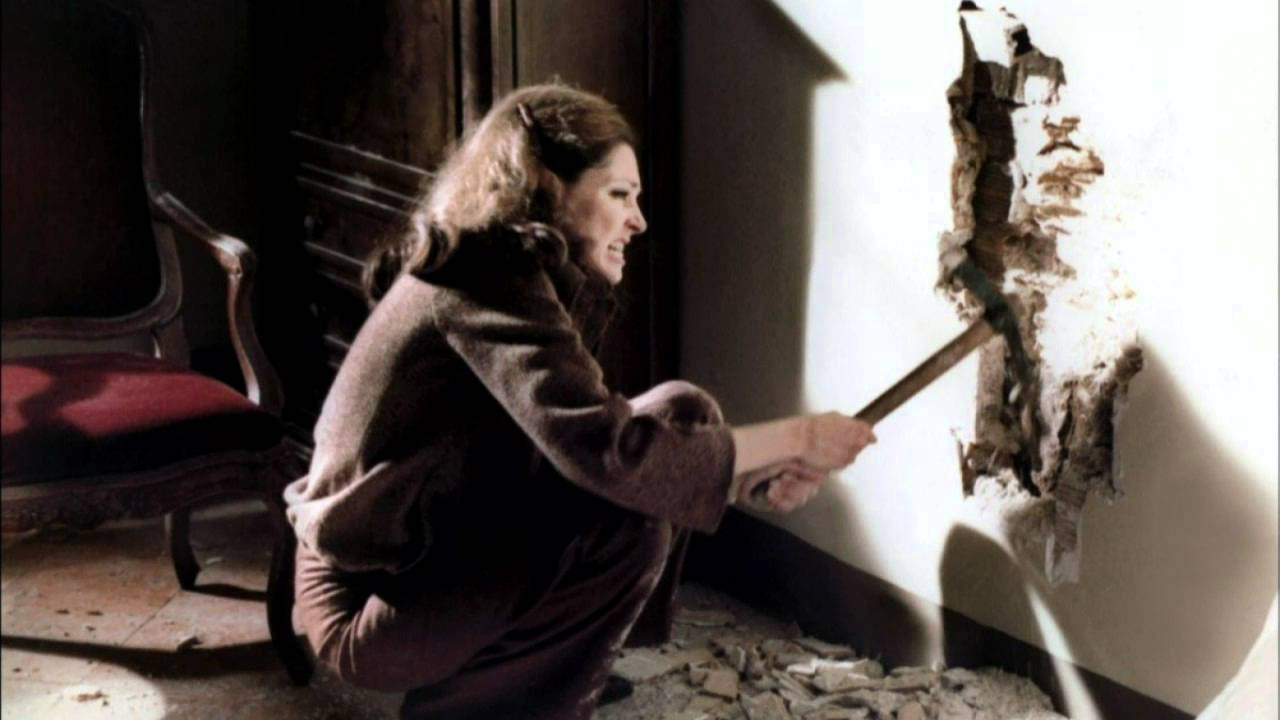
Lucio Fulci is known the ‘Godfather of Gore’, making blood-fueled features such as Zombi 2 (1979) and The Beyond (1981). The Psychic, in contrast, pales in terms of gore. But at the same time, it is also a much better thriller than his rather incoherent gore movies. It is not to say the film’s plot makes much sense, but that it has a basic narrative structure (resembling a dream) which renders an enjoyable experience.
It follows a woman’s (Jennifer O’Neill) investigation, in an attempt to clear her husband’s name, who is being charged with murder. Because the film contains multiple plot twists, it is recommended that the viewer knows nothing of the plot before watching.
The bleak color contrast of Sergio Salvati’s cinematography creates a daunting mood, perfectly complimented by Fabio Frizzi’s soundtrack. The film is one of Quentin Tarantino’s favorites, who used the film score in Kill Bill: Volume 1 (2003).
While not a unreservedly great movie in its own right, it is an intelligently crafted B-movie that is worth watching. With its special 1970s horror film texture, this film serves as the ideal introduction to Fulci’s filmography for the viewers reluctant about gore.